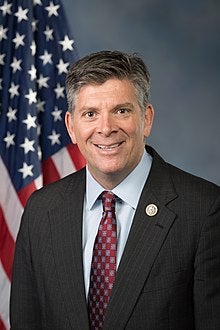On Wednesday, July 29th WITA hosted a webinar with Congressman Darin LaHood (R-IL), member of the House Ways and Means Committee. Congressman LaHood discussed topics pertaining to U.S-China relations and trade.
Webinar Featuring:
Congressman Darin LaHood (R-IL), member of the House Ways and Means Committee
Wendy Cutler, Vice President, and Managing Director, Washington D.C. office of the Asia Society Policy Institute
Webinar Summary:
Moderator Wendy Cutler began the interview by asking Congressman LaHood about the goals and priorities of the Republican China Task Force, specifically what they are hoping to accomplish with regards to trade relations and competitiveness. The Congressman explained how the original intent was to create a bipartisan China task force, which fell through after the chaos of COVID-19. Now, the Task Force is composed of fifteen House Republicans divided into 5 subcommittees hoping to tackle issues such as transparency, human rights violations, national security, and economic relations. They meet several times a week (virtually) and are currently working on a comprehensive report set to be published in September that proposes legislation and policies about topics like Hong Kong, re-education camps, and forced labor.
Wendy followed up by asking about the emphasis on increasing Chinese farm purchases, and how the Congressman thinks they’ve done with their Phase One Deal obligations thus far. He responded with worries, suggesting the progression has not been quick enough. China has committed to buy 200 billion dollars worth of products, 50-60 billion of that being agricultural products (which are very important in the Congressman’s district). While he wants China to move faster with regard to their purchasing obligations, he also disagrees with the administration’s hints about pulling out of the deal. He believes that this would be devastating politically as well as for our farmers. Furthermore, the real enforcement mechanisms come into play during Phase Two, so we need to make it through Phase One in order to get to this new level.
The discussion moved towards which non-tariff tools the Task Force is considering using to leverage China. Congressman LaHood expressed his dislike for tariffs, as they are a form of taxation that places a burden on businesses and consumers. If the bilateral negotiations were to fall through, he hopes that more tariffs will not be the default action of the administration. He is also weary about focusing our efforts on reshoring supply chains, since the Chinese middle class is a huge market for us which makes it financially difficult to pull U.S. companies out of China. However, he places technology companies in another category, and considering their growing inability to operate freely in China, they should be treated differently and incentivized to reshore here.
Lastly, the Congressman argued for a multilateral approach to dealing with China and using our allies, many of whom have similar issues with China, in order to isolate them on a global scale. He believes the digital and IP protection aspects of the USMCA will act as a good template for future agreements, as well as certain aspects of the TPP. Additionally, he advocates for a bipartisan movement to reform the WTO in order to make it more responsive. In the Q&A session, Congressman LaHood answered questions about public input for the China Task Force, benefits of the TPP, supply chains, and the Huawei situation.

